AGOA Civil Society and Organized Labor Forum
Opening Remarks
Speakers
- Dr. Robert Litwak, Senior Vice President and Director of International Security Studies, Wilson Center
- Ambassador Katherine Tai, United States Trade Representative
- Dr. Monde Muyangwa, Assistant Administrator, Bureau for Africa, USAID
- Oge Onubogu, Director, Africa Program, Wilson Center
To begin, Dr. Robert Litwak provided opening remarks on behalf of the Wilson Center.
Ambassador Katherine Tai shared her insights on American global trade and emphasized the importance of thinking outside the box of tradition. She noted that better results require better inputs and emphasized the need to invite and welcome those who have been left out. She noted that the convening power of AGOA is a critical pillar of the partnership and concluded that trade can and must help craft a more fair and equitable future for Africa.
Dr. Monde Muyangwa emphasized the United States government’s commitment to Africa. She reflected on demands across the continent for inclusive societies and referenced several new USAID initiatives focused on creating more inclusive and equitable relations. She reflected on the importance of learning lessons from the past two decades of AGOA and prioritizing human and labor rights going forward.
Oge Onubogu framed the conversation by noting the importance of understanding AGOA’s impact on the everyday lives of citizens and businesses in Africa and in the US, and she introduced the event’s first session.
Session 1: AGOA: Exploring the Human Rights and Trade Nexus
Moderator
- Gerardo Berthin, Vice President, International Programs, Freedom House
Panelists
- Ndidi Okonkwo Nwuneli, CEO, ONE Campaign
- Michael Honigstein, Director, African Affairs, Bureau of Democracy, Human Rights, and Labor, U.S State Department
- Rose Ugulumu, Program Coordinator, Business and Human Rights, Tanzania
- Oluwadare Kolawole, Deputy Director, Socio-Economic Rights and Accountability Project, Nigeria
In Session 1, speakers emphasized the importance of human rights in generating economic growth and the goal of AGOA to create broad prosperity cannot be achieved without respect for human rights, labor rights and sound governance. They expressed a desire to see AGOA grow in terms of volume and types of trade yet noted that knowledge of AGOA is low, citing that in one study of Tanzanian stakeholders, 56% of were not aware of the Act – including some government human rights institutions, labor rights institutions and civil society organizations. They suggested that there be a prioritization of the goals of AGOA, that civil society become stronger supporters of companies attempting to meet AGOA standards, and pointed to the importance of differentiating who receives the benefits of AGOA; African entrepreneurs or multinational companies. The question was also raised as to whether AGOA is a trade or governance tool, and which facet of the Act should be prioritized.
Recommendations
- To ensure that human rights components of AGOA remain intact, a clear scorecard that assesses human and labor rights situations that is locally contextualized and specific needs to be established.
- More data on local and indigenous players in the value chain.
- Greater incentives to encourage local sourcing.
- Increased partnerships between American and African CSOs.
- A strategic plan for civil society organizations to spread awareness of AGOA should be developed by civil society.
- Inclusion of CSOs in periodical AGOA reviews in order to share realistic views of the progress of the program.
Session 2: Advancing an Inclusive and Equitable Workforce through AGOA
Moderator
- Stephen Moody, Director, Office of International Labor Affairs, U.S. State Department
Panelists
- Zingiswa Losi, President, Congress of South African Trade Unions (COSATU)
- Hod Anyigba, Executive Director, Africa Labor Research and Education Institute and Chief Economist, International Trade Union Confederation-Africa
- Matthew Levin, Director, Office of Trade and Labor Affairs, U.S. Department of Labor/Bureau of International Labor Affairs
- Emmanuel Ugboaja, Secretary General, Nigeria Labor Congress
In Session 2, speakers highlighted the need to differentiate between those who violate human rights and those who are impacted when countries are expelled or suspended from AGOA, and to implement mechanisms that do not punish citizens due to rights violations committed by their government’s which they have no control. They referenced how at times foreign companies come to Africa to take resources, making Africans themselves buy back these resources and noted that, while AGOA has succeeded in boosting formal economics and industries, the program as it stands has resulted in some economic enclaves, benefitting only a few people within these societies. Speakers agreed that AGOA must ensure gains from the program reach African workers and benefit those on the continent, including the informal sector, and that addressing this issue requires a shift in perceptions of the continent.
Recommendations
- Promote value chain integration by better aligning AGOA with AfCFTA.
- Consider a replication of ILO conventions of the United States–Mexico–Canada Agreement.
- Increased worker representation in decision-making spheres.
- Better technical assistance and capacity building to introduce robust labor laws.
- A rapid response mechanism for independent verification of labor violations to quickly resolve issues and prevent the need for greater punishment.
Session 3: AGOA Accessibility and Small and Medium-Sized Enterprises
Moderator
- Witney Schneidman, CEO of Schneidman and Associates International, Wilson Center Africa Program Advisory Council
Speakers
- Rahama Wright, CEO, Shea Yeleen
- Laura Akunga, Kenya Chair, African Women’s Entrepreneurship Program
- Vanessa Adams, CEO & Programs Lead, Level4 International
In Session 3, speakers shared their first-hand involvement in African entrepreneurship and noted that it is important to show examples of how small businesses benefit from AGOA. They said it is critical to create a customer base for African products and an ecosystem where access to capital, training, data and knowledge are available for African SMEs, especially as many entrepreneurs on the continent face barriers accessing capital at reasonable rates. They agreed that people mut be at the forefront of the AGOA trade discussion, but noted that AGOA is not relevant to many young people on the continent and thus it is difficult to “sell” the benefits of the program to them. Speakers wanted to see more options for female entrepreneurs in Africa beyond cheap labor, but this requires derisking entry into more profitable, sustainable industries.
Recommendations
- A simplification of the process of African SMEs to get the certification needed to export as an improvement to AGOA.
- An extension of the AGOA review process beyond an annual review with more specific indicators on the scorecard.
- Support for African institutional and government capacity building to implement support systems for African SMEs.
- A utilization strategy should be implemented by AGOA beneficiaries, either on a sector or individual level. However, it must be ensured that the penalties agreed upon in these agreements do not harm individual farmers or workers if the issue is, for example, in corporate governance.
Session 4: Summary, Key Points, and Closing Remarks (5:05PM-5:30PM ET)
To conclude, Fred Oladeinde, chairman of the AGOA CSO Network and president of the Foundation for Democracy in Africa, provide summary remarks and Africa Program Director Oge Onubogu shared an event readout at the official AGOA Ministerial on July 25 -26.
For a full summary of the forum, read the event report below.
Speakers



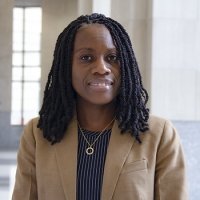
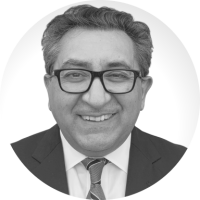
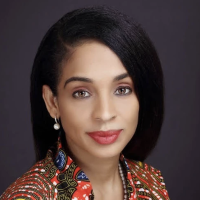

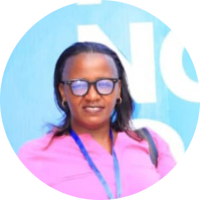
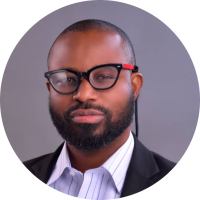
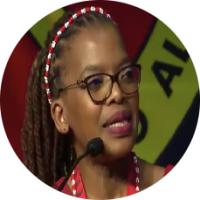

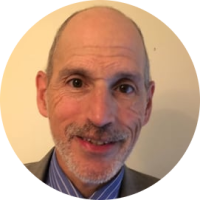
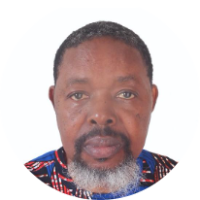
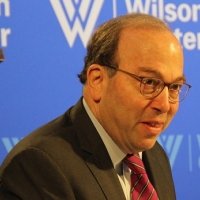
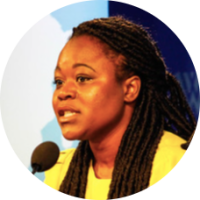
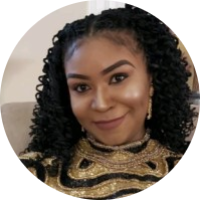
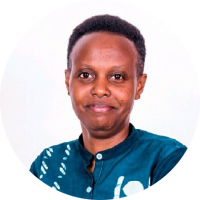
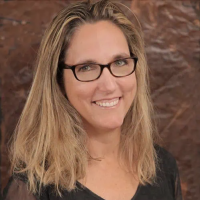
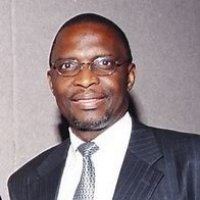
Hosted By

Africa Program
The Africa Program works to address the most critical issues facing Africa and US-Africa relations, build mutually beneficial US-Africa relations, and enhance knowledge and understanding about Africa in the United States. The Program achieves its mission through in-depth research and analyses, public discussion, working groups, and briefings that bring together policymakers, practitioners, and subject matter experts to analyze and offer practical options for tackling key challenges in Africa and in US-Africa relations. Read more
